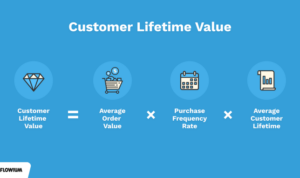Referral Marketing Ideas sets the stage for this enthralling narrative, offering readers a glimpse into a story that is rich in detail with american high school hip style and brimming with originality from the outset.
Get ready to dive into a world of creative marketing strategies that can take your business to the next level.
Referral Marketing Strategies
Referral marketing is a powerful tool for businesses to acquire new customers through the recommendations of their existing customers. Here are some effective referral marketing strategies:
Offer Incentives
- Provide discounts, freebies, or exclusive deals to customers who refer new business.
- Consider a tiered reward system where the referrer and the new customer both receive a benefit.
- Make sure the incentives are valuable enough to motivate customers to refer others.
Create Shareable Content
- Develop engaging and shareable content that customers will want to pass along to their friends and family.
- This could include informative blog posts, entertaining videos, or interactive quizzes.
- Make it easy for customers to share this content by including social sharing buttons and referral links.
Utilize Referral Software
- Invest in referral software that can help automate the referral process and track referrals effectively.
- Look for features like customizable referral links, tracking codes, and performance analytics.
- This will make it easier to manage your referral program and measure its success.
Encourage Customer Reviews, Referral Marketing Ideas
- Ask satisfied customers to leave reviews on popular review sites or social media platforms.
- Positive reviews can act as referrals and help attract new customers to your business.
- Respond to reviews, engage with customers, and show appreciation for their feedback.
Partner with Influencers
- Collaborate with influencers in your industry to promote your products or services to their followers.
- Influencers can provide trusted recommendations and reach a wider audience with their influence.
- Ensure that the influencer’s values align with your brand to maintain authenticity and credibility.
Measure and Optimize
- Track the performance of your referral program and analyze data to identify areas for improvement.
- Monitor key metrics like referral conversion rate, customer lifetime value, and ROI.
- Use this data to make informed decisions and optimize your referral marketing strategies for better results.
Incentives and Rewards
When it comes to referral programs, offering attractive incentives and rewards can make all the difference in motivating customers to refer others. It’s essential to provide incentives that are valuable and appealing to your target audience to encourage them to participate in your referral program.
Types of Incentives and Rewards
There are various types of incentives and rewards that companies can offer for their referral programs. Some popular options include:
- Cash rewards
- Discounts on future purchases
- Free products or services
- Exclusive access to events or content
Importance of Attractive Incentives
Offering attractive incentives for referrals is crucial as it motivates customers to actively participate in your referral program. By providing valuable rewards, you not only encourage customers to refer others but also increase the likelihood of them making a purchase or engaging with your brand.
Examples of Creative Incentives
Several successful companies have implemented creative incentives for their referral programs to drive customer engagement and loyalty. For instance, Dropbox offered extra storage space to users who referred their friends, while Airbnb provided travel credits to both the referrer and the referee. These innovative incentives not only incentivized referrals but also enhanced the overall customer experience.
Referral Program Promotion: Referral Marketing Ideas

To ensure the success of a referral program, it is crucial to effectively promote it to maximize its reach and impact. By creating buzz around the campaign and utilizing the power of social media, you can significantly boost participation and engagement.
Utilize Multiple Channels
- Utilize a variety of channels to promote the referral program, such as email newsletters, social media platforms, website banners, and even physical signage in store locations.
- Engage with influencers or partners who can help spread the word about the program to their followers and networks.
Create Buzz
- Offer exclusive incentives or rewards for those who refer friends or family to the program, creating a sense of exclusivity and urgency.
- Host a launch event or contest to kick off the referral campaign and generate excitement among participants.
Role of Social Media
- Utilize social media platforms such as Instagram, Facebook, and Twitter to share engaging content about the referral program and encourage users to participate.
- Create shareable graphics, videos, or posts that highlight the benefits of the program and make it easy for users to refer others.
Measuring Success

When running a referral marketing campaign, it’s essential to track key metrics to determine its success and impact. By analyzing these metrics, businesses can make informed decisions and optimize their strategies for better results.
Key Metrics for Tracking
- Conversion Rate: Measure the percentage of referred leads that convert into customers. A high conversion rate indicates the effectiveness of the referral program.
- Customer Lifetime Value (CLV): Calculate the value a referred customer brings to the business over their lifetime. This helps in assessing the long-term impact of referrals.
- Referral Traffic: Monitor the amount of traffic generated through referral links. Analyzing referral traffic can provide insights into the reach and engagement of the campaign.
Significance of Measuring ROI
Measuring Return on Investment (ROI) in referral marketing is crucial for determining the profitability of the campaign. By calculating the ROI, businesses can evaluate the cost-effectiveness of acquiring new customers through referrals and compare it to other marketing channels.
ROI = (Net Profit – Cost of Referral Program) / Cost of Referral Program
Tools and Techniques for Analysis
- Referral Program Software: Utilize specialized software to track and measure the performance of the referral program. These tools provide insights into referrals, conversions, and rewards.
- Google Analytics: Leverage Google Analytics to monitor referral traffic, user behavior, and conversion rates. Set up goals and track the success of referral campaigns through custom reports.
- A/B Testing: Implement A/B testing to compare different referral strategies and incentives. Analyze the results to identify the most effective approach for generating referrals.





